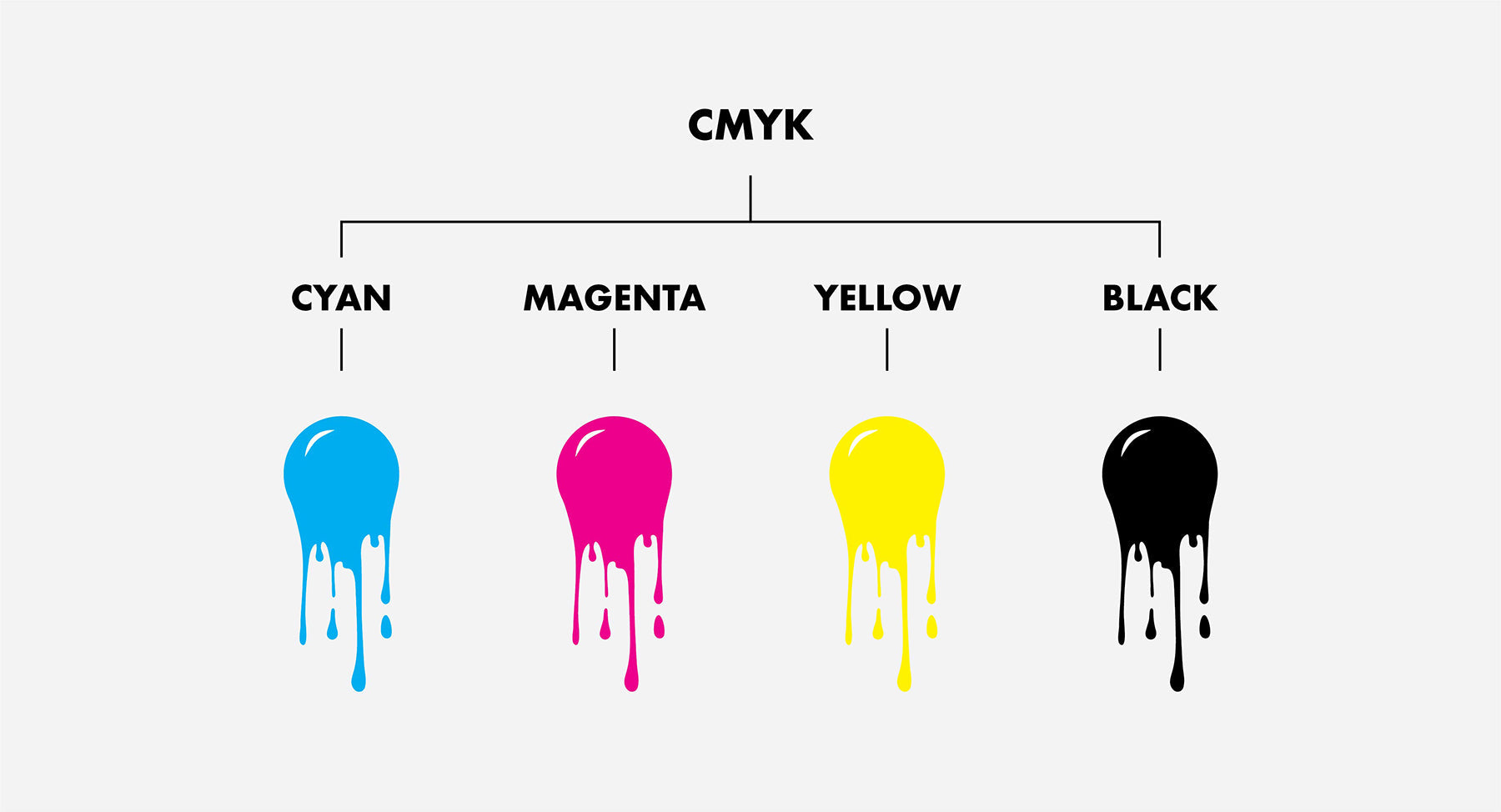
Color Systems Guide. Difference Between CMYK, RGB, Hex & Pantone
At Urban Sign and Print we believe the key to successful branding or marketing campaign is consistency and defining right colors, which will be carried across multiple mediums, is highly important. But sometimes the colors that you see on the screen might not necessarily look the same when printed. This is because different color spaces are used for different processes.
All colors are represented in RGB, Hex, CMYK and Pantone color spaces. Whether you are a business owner, marketer, developer or designer, it is crucial to have a basic understanding of each color process to ensure a color consistency is maintained. Here’s a quick summary to help you understand what is CMYK, 4 color process, RGB, Hex, Pantone, PMS and Spot Color.

CMYK (four-color process)
Use: Offset and digital printing
Four-color process uses the color space known as CMYK (Cyan, Magenta, Yellow and Black). These four colors are mixed together to make up other colors. Different combinations of CMYK transparent dots overlap each other and the human brain compiles thesedots into a single color image. Colors are defined by the % of each color used. For example, a specific color would be represented as C=70 M=6 Y=31 K=5.
When you have 100% of all colors (C 100%, M 100%, Y 100%, and K 100%) it creates solid black. In contrast, when you have 0% of all colors (C 0%, M 0%, 0%, Y, and 0% K), everything is subtracted and your print will come out completely blank. If you are looking for more vibrant tones or shades of grey, you’ll achieve better results using all four color elements. For example, what is referred to as “rich black” uses C 50%, M 50%, Y 50%, and K 100%.
Four-color process is definitely the most popular printing method. It is important to use CMYK when creating a design for print to ensure your desired colors translate correctly from the computer to the printed product.

RGB (red, green, blue)
Use: Onscreen
RGB is the process by which colors are rendered onscreen by using combinations of red, green and blue. These colors are used in the display of digital color images on TV, mobile devices and online applications.
RGB colors appear vibrant because they are illuminated and there is a larger range in color spectrum than what you would get with CMYK. This is why in often cases you can have undesired, less vibrant results when trying to print RGB design files using a CMYK process. In fact, there are even certain shades of colors that can’t even be achieved with CMYK.
While CMYK values for each color use a percentage between 0-100%, RGB uses a value between 0-255. With R=255 G=255 B=255 being a full white and R=0 G=0 B=0 being black.

Hex (hexadecimal color)
Use: Web
RGB colors used in web design are often represented in hexadecimal values, a color code that a browser can read. HEX color is expressed as six digits values that are made up of numbers 0-9, letters A-F, and preceded by a hashtag. For example, a HEX white would be #FFFFFF and black would be #000000.

Spot Color or Pantone® (PMS)
Use: Offset printing
Pantone® Matching System colors (also called PMS or spot colors) are patented, standardized color inks made by the Pantone company. PMS color swatches are described by their allocated number (typically referred to as, for example, "PMS 130”). They are printed as spot colors which means the color is printed in a single run as opposed to being created by a mix during multiple runs like with four-color (CMYK) process.
Spot color printing in certain instances can be more expensive but will be necessary to achieve something like a company brand where CMYK is unable to meet the specific color requirement. The Pantone system also allows for many special colors to be produced, such as metallics and fluorescents.
If a company needs to print just a couple of solid colors, like their logo on a sign, or on the cover of promotional brochures, they will often just print the solid spot colors using only the official PMS colors. Pantone colors are almost always used in branding and have even found their way into government legislation and military standards.
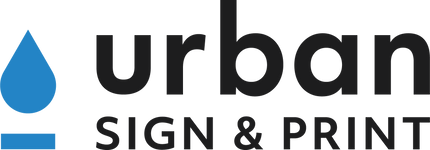





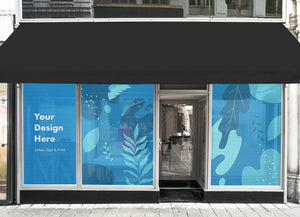

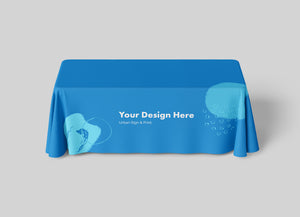
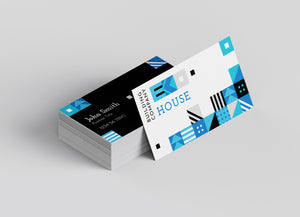

Leave a comment